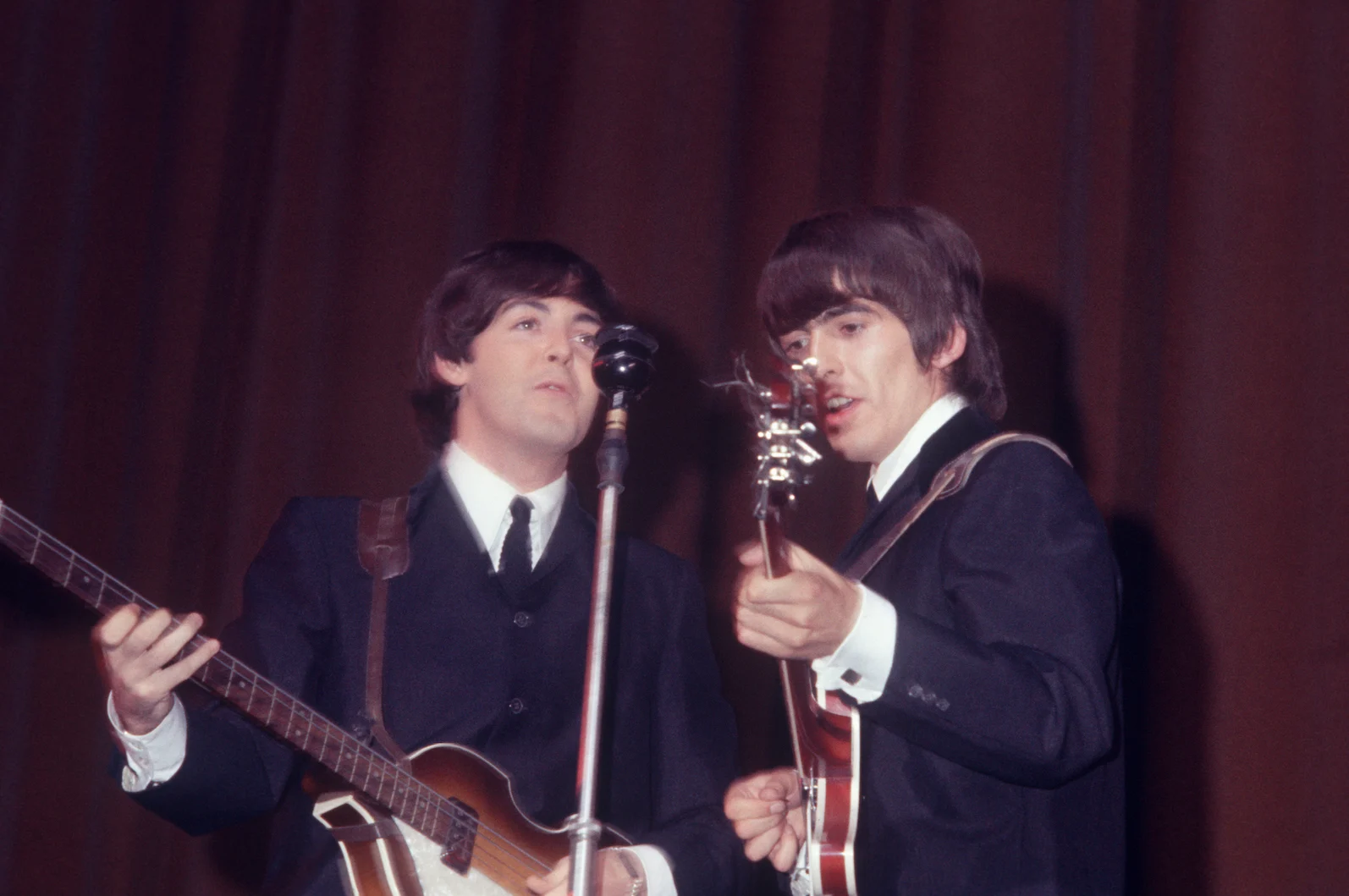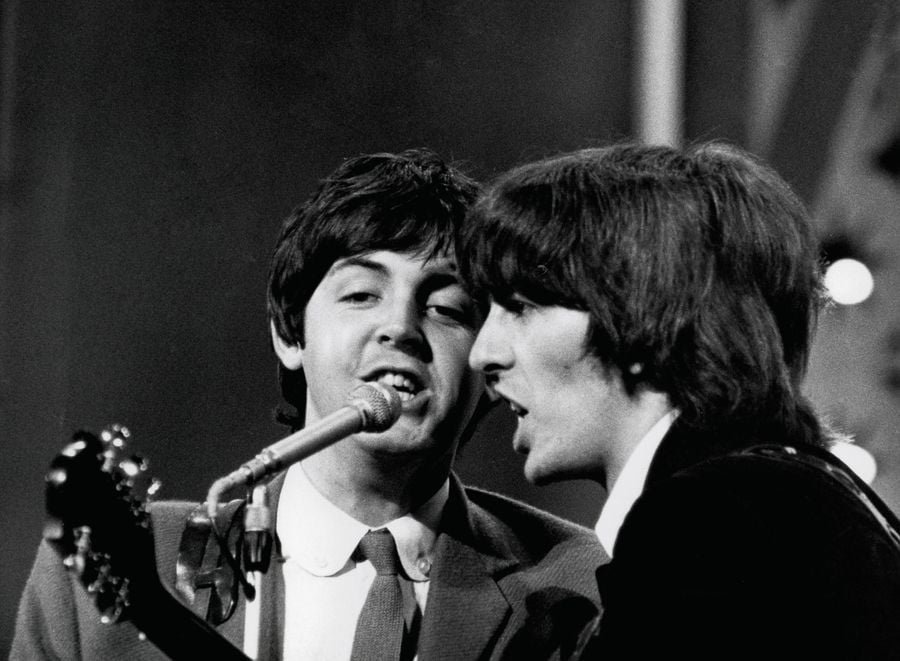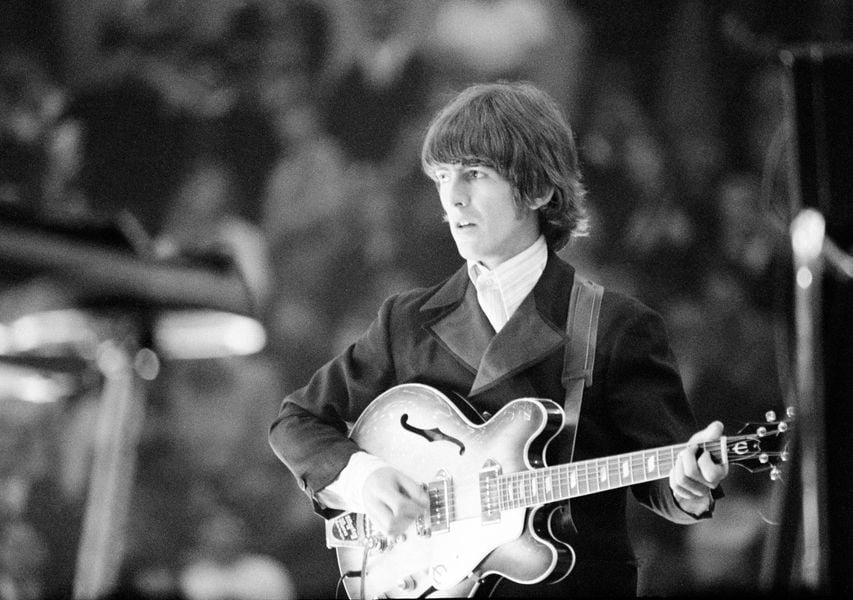
When parcelling up the roles of the four bandmates, John Lennon, Paul McCartney, Ringo Starr and George Harrison, their positions stretch far beyond the different instruments that made up The Beatles‘ sound. Lennon would operate as the band’s mouthpiece and de facto leader, Paul McCartney enjoyed being the group’s creative drive, and Ringo Starr was the warmth that all fans hope to receive from their idols. George Harrison may well have been regarded as the Quiet Beatle, but he was the group’s moral compass in many ways.
That’s not to say he was without misgivings; ask Ringo Starr about that. But Harrison would become the group’s spiritual leader and endorse the eastern philosophies that would eventually seep their way into the band’s work. Whether it was the benefits of transcendental meditation or the simple practice of mindfulness, it would appear that Harrison was at the centre of the group’s drive to achieve a particular social and emotional balance. It also meant that Harrison was the most advantageous when taking on the establishment.
Of course, Lennon often pitched himself as the rebellious pillar of the group, returning his Royal Honours being one of the most flagrant moments of the band’s anti-establishment protests. But Harrison would use his songs to aim at the government which ruled him and the perceived financial greed they were trying to enact on him, his bandmates and his contemporaries. He chose to vilify those hoping to extract his precious cash in two classic Beatles songs from 1966, Revolver tune ‘Taxman’ and The White Album belter, ‘Piggies’.
Of course, ‘Taxman’ is one of the first songs in which Harrison flexed his songwriting muscles. When faced with writing one of his first tracks, rather than get lost in the idea of blissful love or teenage rebellion as the Lennon-McCartney partnership had done, Harrison chose to deliver an acerbic take on the tax collections that had begun to ruin his time in Britain. “I had discovered I was paying a huge amount of money to the taxman. You are so happy that you’ve finally started earning money – and then you find out about tax,” explained Harrison in Anthology.
It was a situation that would see many of the groups who had successfully spread the idea of Britain’s cultural command take refuge outside the realm. “In those days,” the guitarist and singer continued, “we paid 19 shillings and sixpence out of every pound, and with supertax and surtax and tax-tax it was ridiculous – a heavy penalty to pay for making money. That was a big turn-off for Britain. Anybody who ever made any money moved to America or somewhere else.”
The song also contained two firsts for The Beatles. It saw Lennon help Harrison despite the fact he “didn’t want to do it.” The other first also saw Harrison pick out the current prime Minister Harold Wilson and the leader of the opposition Edward Heath, the two politicians becoming the first real people to be named within a Fab Four song. But that wasn’t the only song that saw Harrison take aim at the government’s financial greed.
‘Piggies’ was written in the same year as ‘Taxman’ and clearly denotes Harrison as a disgruntled taxpayer, to say the least. The song also saw Harrison lean on another influence in his life, this time ditching Lennon (apart from the odd line) for his mother. “‘Piggies’ is a social comment. I was stuck for one line in the middle until my mother came up with the lyric, ‘What they need is a damn good whacking,’ which is a nice simple way of saying they need a good hiding. It needed to rhyme with ‘backing,’ ‘lacking,’ and had absolutely nothing to do with American policemen or Californian shagnasties!”
Of course, it must be said that Harrison’s issues here hardly represent the greatest of social movements. He may well have been the group’s spiritual leader and moral compass, but his problems with hefty taxation were something that largely affected only the super-rich. However, these songs still represent a couple of the handful of times The Beatles took on those in charge and spread their message of dissent.
Listen to ‘Taxman’ and ‘Piggies’ below.




